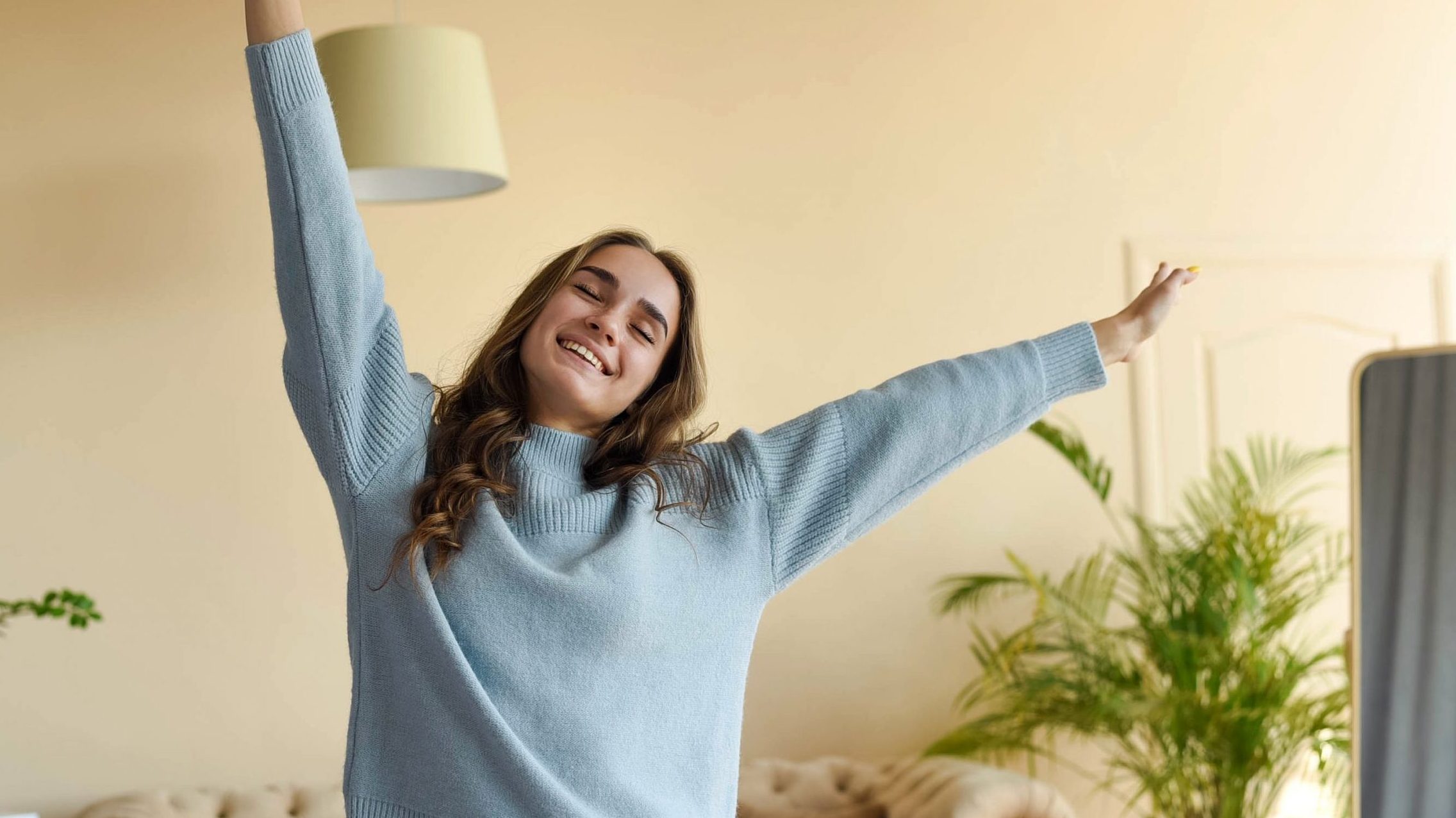News
This is how the things around us affect our mental health
It cannot be denied that we all need certain material things to live by, but learning to separate those goods we need from those we want and understanding that happiness in everyday experiences is essential
Our psychological balance.
Did you feel peace, calm and reassurance when you got home? And feeling overwhelmed when the room is turned upside down? The environment we live in is not only a reflection of our personality, but it also has a significant impact on our psychological well-being and can directly influence our behavior and state of mind.
In fact, according to a study conducted by University of Bath, The space we call home has a huge impact on how we perceive and interact with the world.
To be happy: less is more
In the same way that open, clear spaces with natural light reduce stress and convey calm, enclosed, dark, and crowded environments can predispose us to anxiety and emotional discomfort.
This relationship between the environment and our well-being is mutual: in the same way that we leave our mark on the spaces in which we live, they themselves influence the way we live. The most recent example is found in the pandemic, which has undoubtedly been a challenge to society. Our homes became the nerve center of daily activities and moments of happiness, stress and anxiety occurred within the same four walls, blurring the boundaries between personal, academic and professional life.
But it’s not just the environment that affects our mental health. Our possessions also play an essential role in constructing our identity, sometimes without us even realizing it. The clothes we wear and other personal items, such as books or plants we have at home, reflect our personality and reveal our tastes and preferences.
They also have an impact on our well-being, conveying sensations of complete comfort and happiness that often provide relief from the discomfort of the hectic pace of life. In that moment, when possessions become an extension of ourselves and material goods not only fill the voids but also cover our emotional needs, we are confronted with the struggle between happiness and materialism.
Material happiness: in search of ephemeral luxury
Humans have always sought the comfort and satisfaction of material goods, which were, in essence, created to make our lives easier and more bearable. This search for happiness through possessions is one of the major problems plaguing century society. xxi Especially for young people who live in a world characterized by overexposure, social norms, and the need to show themselves a certain way on social networks.
This context, added to the evolution of an increasingly global world where advertising no longer sells products, but lifestyles, means that we end up confusing happiness with materialism.
According to a survey conducted in SpainShopping is the activity that makes the happiest 58% of people. from the public. The origin of this feeling may be in a neurophysiological response, while we feel happy and satisfied with the acquisition of a new object, because we are satisfying a need we had. This sensation is a natural response, but it is also addictive and, above all, ephemeral, and can be counterproductive if used to fill a void, mask low self-esteem, or hide emotional flaws.
The truth is, the joy and well-being of consuming material goods is a mirage. Once we incorporate these things into our lives and lose their new effect, happiness gradually disappears and we return to the starting point, where we need to make a new purchase in order to experience that sensation again. What brings us this happiness, then, is not only the material good, but the experience of having that item. In order to stop this vicious cycle, it is advised to ask yourself: Does this make me happy, or has I been told it will make me happy?
The tendency to consumerism is exacerbated by social status and condition Economy. While living in a society with a stable economic system positively affects our well-being, economic crises or high inflation can affect our psychological balance not only because we do not have access to all the goods and services we are used to, but also because they imply a change in our way of living. Experiment and interact with the world.
This loss of purchasing power means a change not only in consumption habits, but also in daily habits, generating insecurity and fear at the sight of our daily routine in danger. We find ourselves in a situation where we have to reduce the cart, work overtime, limit free time or reduce experiences that directly cause our well-being. Psychological comfort, in favor of development Stress, anxiety and even depression, generating feelings of resentment and irritation in the face of an uncertain future. However, crises are also a good opportunity to review our life habits and get rid of everything that is not
We need to get rid of the consumer mentality and learn to value human relationships and small details more.
Five tips to be happy with less
There is no denying that we all need certain material things to live, and lack of access to these goods can have a negative impact on our business. Physical and psychological well-being: a home to protect ourselves, clothes to wear, food to feed us and other added products that can help us have a comfortable life. However, it is important to learn how to separate those goods that we need from those that we want. While the lack of the former can affect our well-being, not having all the goods we want can be beneficial to our psychological balance.
Living with fewer possessions has multiple benefits. In addition to helping focus on the things that really matter, and brightening our day, it also helps us get rid of the materialistic mentality and social pressure that leads us to buy something that doesn’t reflect who we are.
You may not need the latest mobile phone model – although the object itself is useful to us for communication or work – nor is it necessary to buy that outfit in your favorite clothing store because it has gone viral on social networks. When you come to this conclusion, you are not only breaking out of the vicious circle Advertising and consumptionbut you return to controlling yourself in an image-driven society.
This philosophy, which argues that happiness is not found in material things, but is an inner state that comes alive in the daily experiences we have with the people we love most, is increasingly pervasive in society. in this meaning, Isabel Aranda, Health Psychologist and Chief Content Officer at TherapyChatoffers some guidelines for learning (and getting) to be happy with less:
1. Ask yourself if you really need the things you are missing: Confusing need and want is a fairly common feeling, and sometimes we feel sad about not being able to get certain things that we think we need. Learning to distinguish between the things we need and the things we want can help us focus on what’s really important and save us tremendous psychological discomfort.
2. Remember that possessions do not define you as a person: It is essential to remember that your possessions do not reflect your value nor define you; They simply have a benefit in your life. It is a means, not an end.
3. Enjoy the little details in life: Although we tend to associate happiness with great accomplishments, aspirations, or dreams, the happiest moments happen when you least expect them. A meal with the family, that night with a blanket and a movie, an afternoon with your friends… Happiness is often more associated with simpler, everyday experiences with our loved ones than with material goods.
4. Focus on the things you have: Instead of focusing on everything you lack, become aware of what you do have, value it, and be grateful for just having it in your life. This way, you will be more aware of how lucky you are and it will help you feel happier.
5. Embrace new habits that maintain your well-being: In times of crisis, we sometimes have to do without certain activities that bring us joy and happiness, such as going to a yoga class or going out to dinner at a restaurant. However, there are alternatives that can offer us the same fulfillment in a different way. The key, according to experts from treatmentIt is to restructure your habits to embrace those new habits that will allow you to enjoy life and be happy.



:quality(75)/cloudfront-us-east-1.images.arcpublishing.com/elcomercio/DXYVIQR6EBGULOFBFA2HOAQVIM.jpg)

